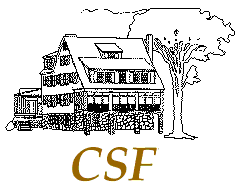
INVITED SPEAKER
George Cybenko, Dartmouth College
Short Bio
George Cybenko, PhD, is the Dorothy and Walter Gramm Professor of Engineering at Dartmouth’s Thayer School of Engineering. Cybenko has made research contributions in signal processing, neural computing, parallel processing, and computational behavioral analysis. His current research interests include agent-based systems engineering, deception detection, deep learning of behaviors, and autonomous systems. He was the Founding Editor-in-Chief of IEEE Security and Privacy. Cybenko is a Fellow of IEEE and received both his BS (U. Toronto) and PhD (Princeton) in Mathematics.
Current Research Intrests
- Computational Behavioral Analysis
- Machine Learning of Processes
- Mission, Network and Computer Security
- Insider Threat Analysis
- Human Terrain of Computer Networks
- Computer Network Operations (CNO) Planning
TITLE
Graph Models in Tracking Behaviors for Cyber-Security
ABSTRACT
It is possible to model the behavior of a computer network and/or host as a finite state automaton in which observations of the states are colorings of the nodes in the associated state transition graph. Given a sequence of observations, a fundamental question is whether the observations result in a corresponding unique state sequence (which is called "observable"), a polynomial number of such sequences (which is called "trackable") or an exponential number of sequences (which is called "untrackable"). We will review recent results relating these concepts to transition graph properties as well as entropy rates in the case of stochastic (HMM) models. These concepts and results will be made concrete with examples that use radio frequency emissions from a microprocessor to infer properties of a computation executing on the processor and how attackers and defenders would want to shape the associated computation and measurements of it.





